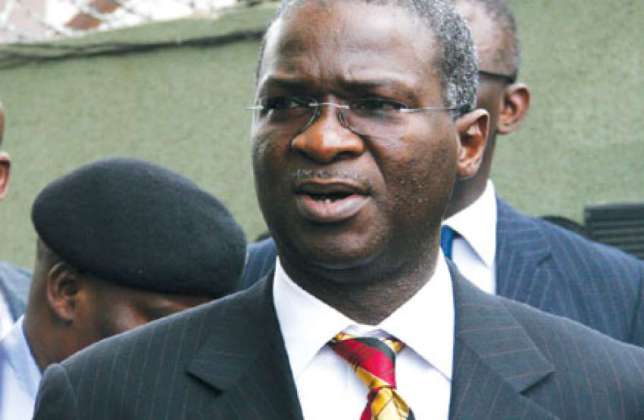Minister of Power, Works and Housing, Mr. Babatunde Fashola, has raised the hopes of electricity consumers in Nigeria with a promise that additional 2000 megawatts of power would be made available to national grid in 2017.
Fashola, who spoke while giving an account of his one year in office at an interactive session with the media at the weekend, said the projects when completed would address the issue of unstable electricity supply.
The coming on stream of volume of power wold help boost the level of generated power in country, which peaked at 4010mw this year, despite 3,000mw lost to gas pipe vandalisation in the Niger Delta areas.
He said that notwithstanding a paltry budget of N5 billion in 2016, the ministry spent so much on offsetting outstanding debts to contractors, meaning that ongoing work on 100 transmission projects was halted.
Fashola listed the ongoing projects to include 215 mw Kaduna Power, 40mw Kashimbila Power (hydro), 40mw Gurara 1 Power (hydro), 29 mw Dadin Kowa Power (hydro), 10 mw Katsina Power (wind), 1,125 mw (14 solar plants) and the 240mw emergency power project for Afam (gas).
The government recently provided a guarantee to ensure supply of gas to Calabar power plant, which has power transmission but no gas to operate efficiently, according to the minister.
He unveiled plans by Federal Government to invest in rural electrification, using 37 federal universities, seven teaching hospitals as anchors. The projects will improve access to rural communities, he assured.
The minister further revealed a three-year plan to build 42 bridges worth N277 billion.“We have developed proposals for the budget to intervene in critical roads in the six geo-political zones connecting major food producing states, those that produce minerals from mining activities and states that have strategic fuel depots.”
Fashola also promised that the Federal Government would build more houses to stimulate jobs. “Federal mortgage banks will be strengthened to deliver on core mandate of providing mortgages to working-class people to own their homes, and increase supply of private sector developers,” he explained.














